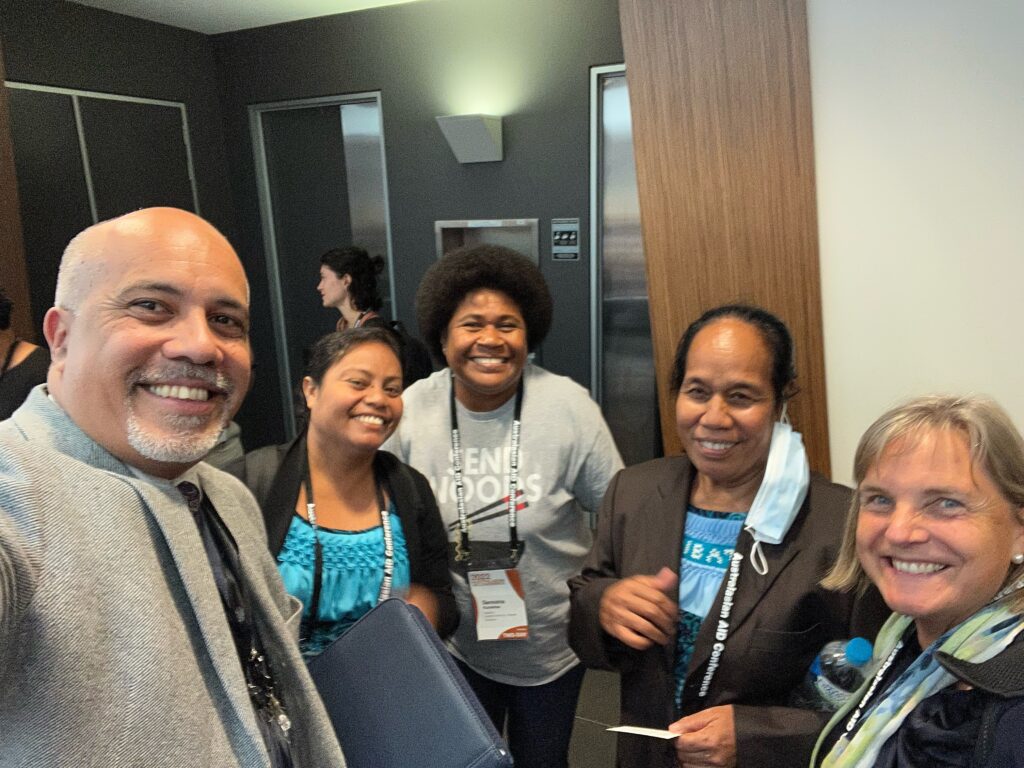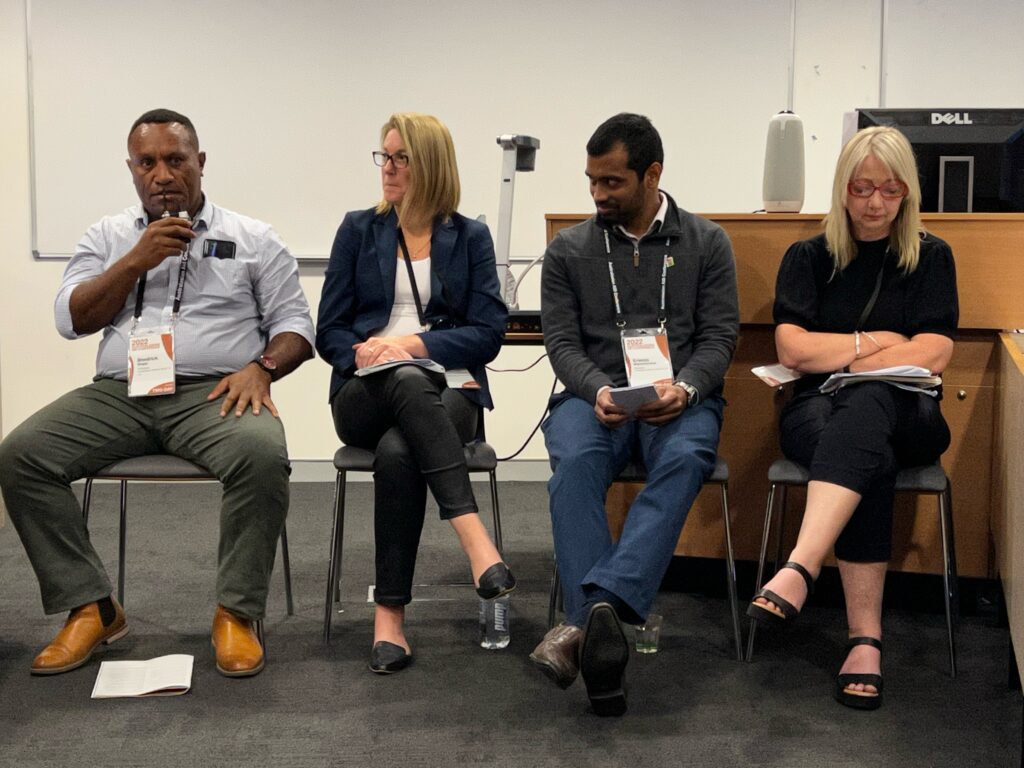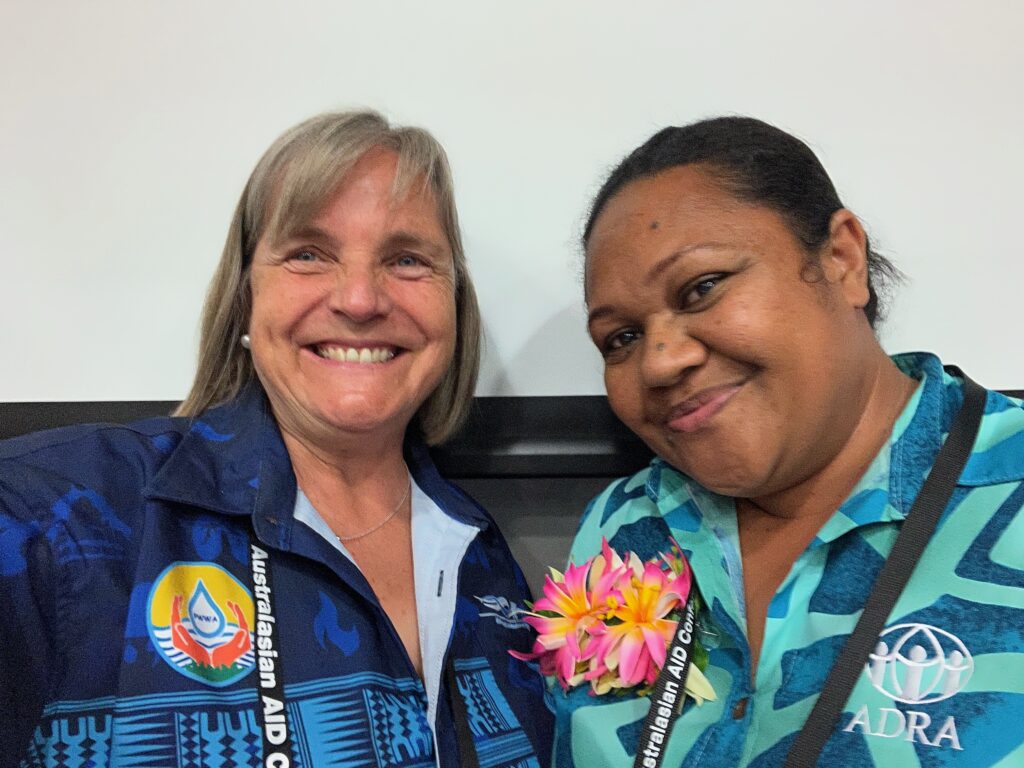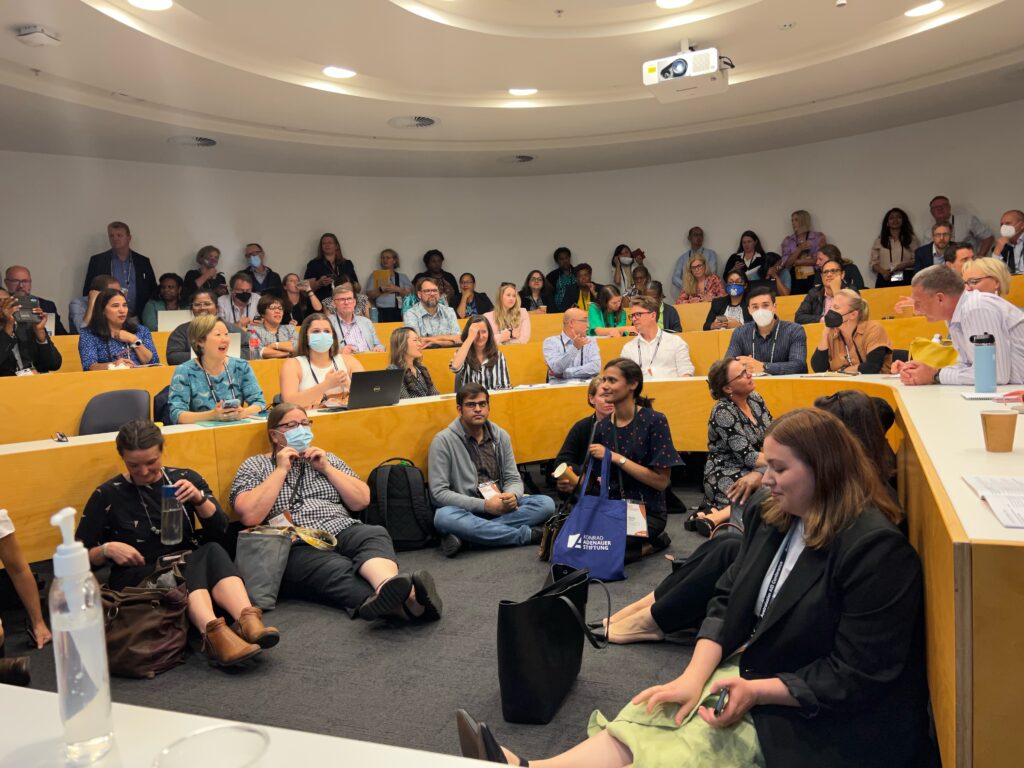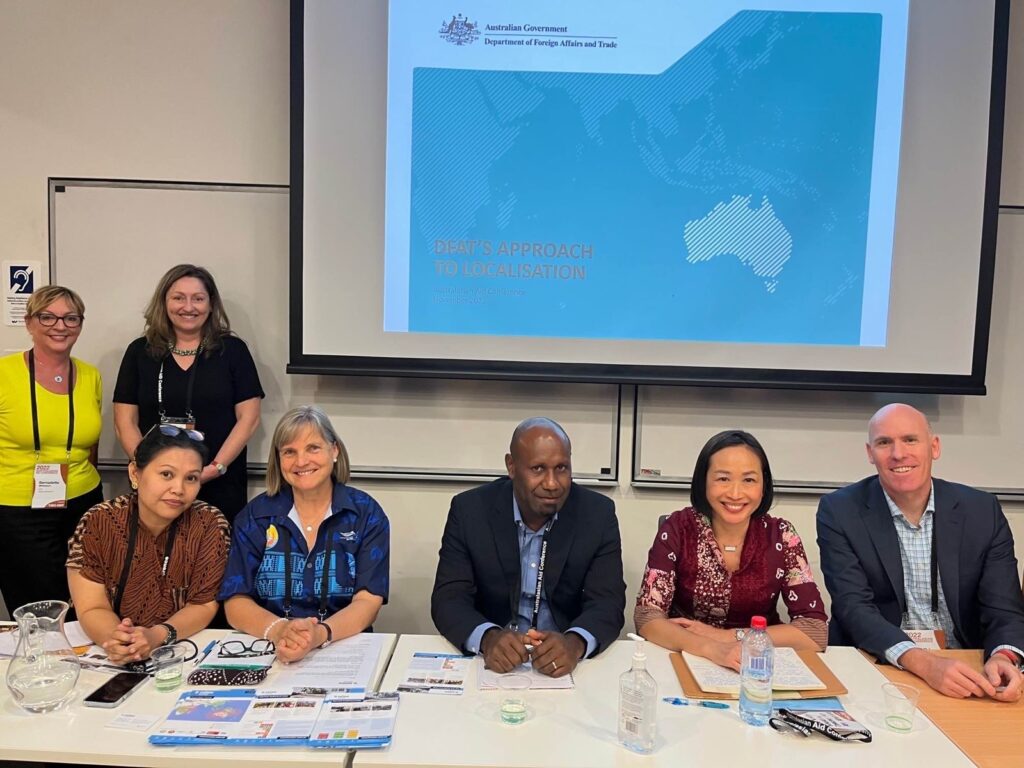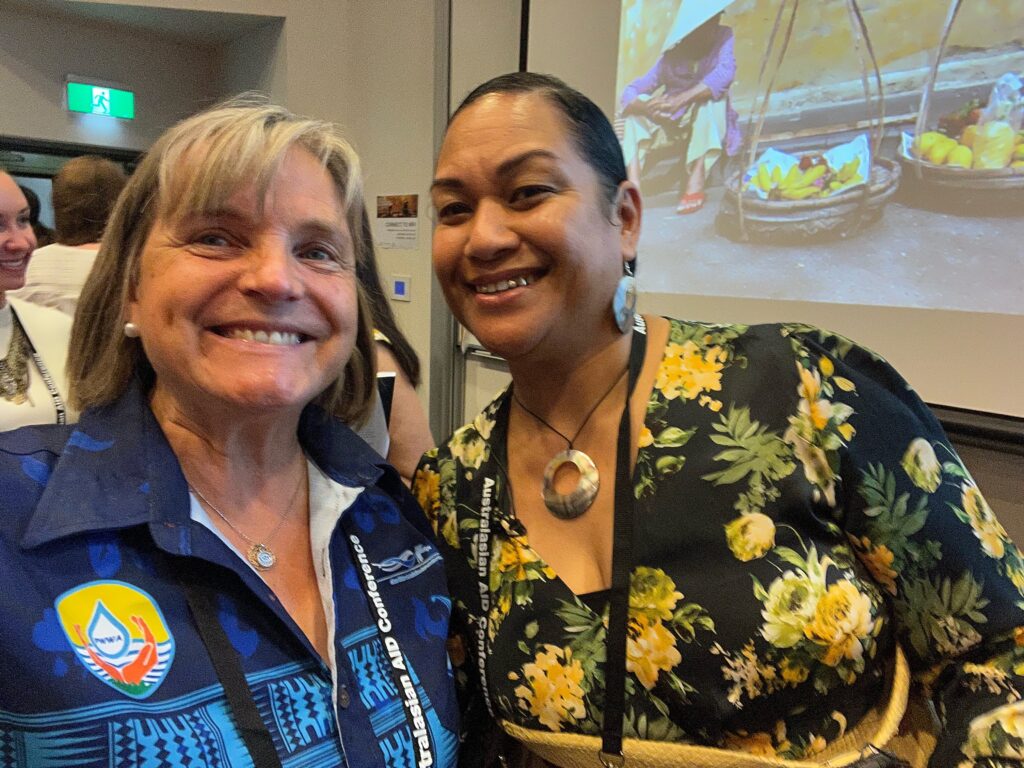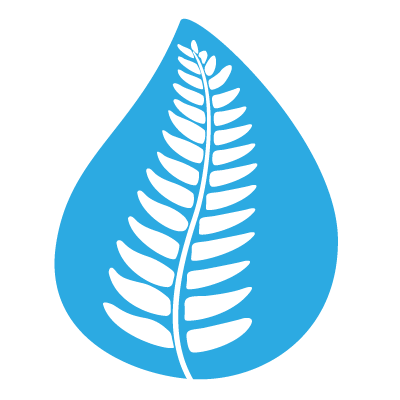The Australasian Aid Conference is an annual conference held in Canberra hosted by the Development Policy Centre and the Asia Foundation. For the 2022 conference, which ran from the 28th to the 30th November, Moerk Water was invited by the IDCC (International Development Contractors Community) to represent small enterprises on a panel discussing localization chaired by Andrew Egan from the Australian Department of Foreign Affairs and Trade. Also on the panel was Anna Winoto from Abt Associates, Fremden S. Yanhambath from Vanuatu Skills Partnership, Ratna Kreshtiana from Australia Indonesia Partnership for Justice and Dr Bernadette Whitelum from Alinea Whitelum.
The panel examined different approaches to localization and some of the advantages and risks of this implementation strategy. Moerk Water presented on their work in the Pacific providing sustainable drinking water solutions to remote communities and how long term and sustainable solutions can only be achieved by using local partners and expertise. The main takeaways from Moerk Water’s talk were that we need to promote more local ownership, improve regional training and capacity and ensure that projects can be supported using both local service personnel and local spare parts. This message was echoed by the other panel members who called for more localization initiatives, particularly through skills development.
The conference was a great opportunity to talk to our donor partners and fellow contractors about issues around water security in the Asia Pacific region. It was also an excellent opportunity to network with some of the key decision makers in the Aid sector. Our highlight of the conference was the presentation by Mrs Ofakilevuka Guttenbeil-Likiliki, Filmmaker and Director of the Women and Children’s Crisis Centre (WCC) in Tonga titled “Enough is enough: audaciously decolonising the development and humanitarian nexus”. Besides promoting gender and cultural equity, which is something Moerk Water proudly supports, Ofa’s talk included a Hawaiian proverb that resonated strongly with us:
“The top of the cliff isn’t the place to look at us, come down, learn about our big and little currents face to face.”
The outcome of the conference was there is still a long way to go particularly in gender equity issues and that aid, as long as it is well directed, to the water and energy sectors will be key to combatting climate change in the region.

